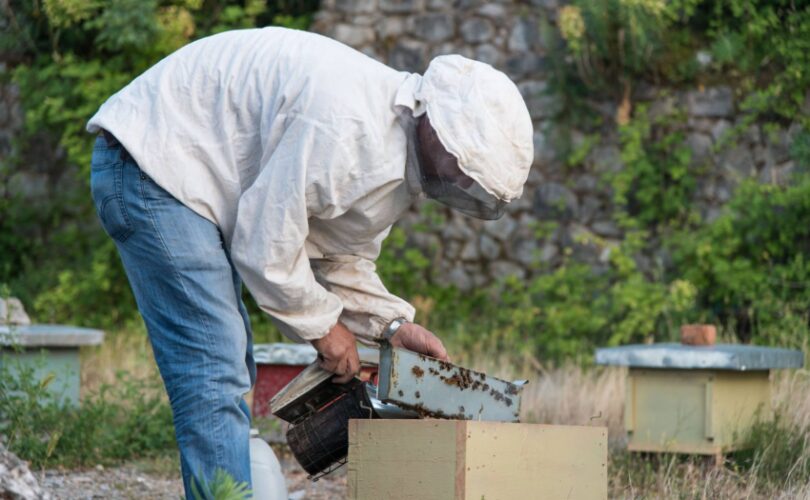Table of Contents
ToggleIf you have already visited Albania you already know what I am talking about “the albanian coffee ritual” and if you are going to visit Albania it is better to know a little bit about the deep connection that albanians have with coffee culture.
1. Introduction
Since I was a child I noticed how in our country a lot of daily habits and rituals involve the preparing and drinking of coffee, in specific I have a vivid memory of my grandmother when she hosted guests for their afternoon meeting and the ritual of preparing the Turkish coffee. I myself got involved since often she would ask me to help her grind the coffee beans previously baked by her with a little oriental style coffee grinder we had at home.

2. Journey of the coffee bean
Coffee culture & history is a fascinating journey that started in Ethiopia and spread across the world and has changed not only humans but also the shape of the planet in order to keep with its needs for it, and let’s be honest with ourselves coffee is an addiction.
Let’s start this exploration of how and when the coffee bean reached in Albania.
It started in Ethiopia & Yemen where this mysterious beverage was made from a plant that locals were cultivating, baking, and boiling, gradually this drink will make its way to other Arab lands and North Africa.
The Turkish merchants were quick to understand the potential of this drink and brought it to Istanbul, where the first coffee shops in Europe were opened in the late XV century called Kiva Han & the coffee culture took roots. By the end of the XV century, Albanian lands would be annexed by the ottomans and many Albanian merchants that traveled to Istanbul ventured into opening coffee shops in their hometown.
3. Coffe in Albania
The Turkish traveler & explorer Elviya Celebi stated that during his travels in modern-day Albania & Kosovo between 1660 to 1670 all the taverns, hotels & houses he visited served coffee among other drinks. In 1725 an Albanian poet from Berat called Muci Zade, surely another coffee-addicted person wrote poetry about the coffee culture & Albanian coffee ritual.
3.1. How Albanians brought coffee to the rest of Europe
Albanian merchants will sail from the Ottoman empire ports to the western European ports trading the coffee bean there, especially in Venice where the first coffee shop was opened around 1645.
3.2. The curious case of Pashk Rosi
Pashk Rosi was an Albanian born in Tuz, a town near Shkodra lake, he was a merchant who lived for many years in Istanbul and found himself a business partner, an English man named William Oldys. In 1653 Pashk Rosi would open the first coffee house in the London center following the Istanbul-style coffee shop.
In the beginning, the Londoner were afraid of this mystical Muslim dark drink that can make you change religion, despite the fact that Pashk was himself, Christian. In the end, he had to write a solemn oath and place it in the coffee shop stating that by “drinking coffee you will not be subject to changing religion”.
20 years later in 1670, Pashk Rosi decided to expand his franchise in Paris, this time his coffee shop was immediately a success. The coffee culture & history is full of stories such as Pashk’s one
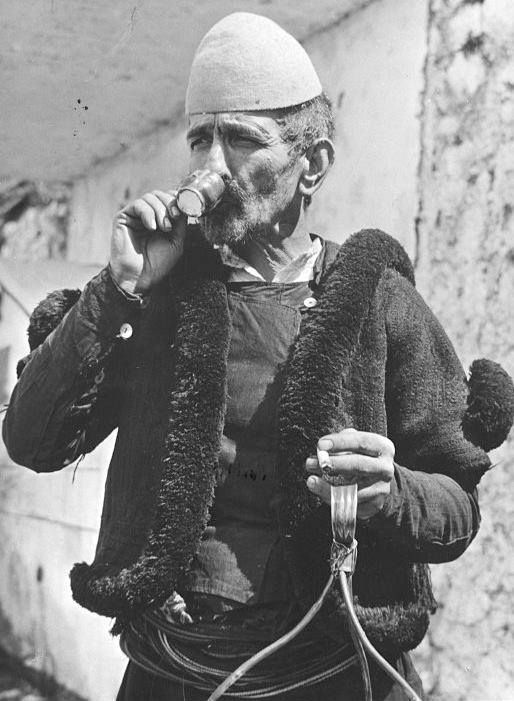
3.3. How Kara Mustafa Pashe Kopruli conquered Vienna
For those that don’t know it, Kara Mustafa failed to conquer Vienna and because of his failure, he lost his head. But we are bringing there a different story!
When the Grand Vizier of the Ottoman Empire Mustafa Pasha (an adopted member of the albanian noble house of Kopruli) was planning the siege of Vienna he ordered that thousands of coffee bean sacks be brought with the army as part of the inventory. The request surprised many officers and quartermasters of the army since the quantity was a tremendous amount of coffee.
The Grand Vizier knew the road will be long and he needed his soldiers in high spirit during this campaign. The ottomans were defeated by the polish cavalry outside Vienna after months of siege, and they retreated in a chaotic order and left behind 500 sacks of coffee beans.
The austrian officers were scared of these beans thinking of them as a sort of gunpowder but a polish merchant named Franz Georg Kolschitzk knew about the coffee beans calmed the austrian officers and claimed them and used them to open the first coffee house in Vienna.
His defeat at the gates of Vienna will cost Mustafa Pasha his head, but the coffee he brought with him conquered the city. The Viennese with be the first o add milk to the coffee drink and since then Vienna is known for its coffee shops.
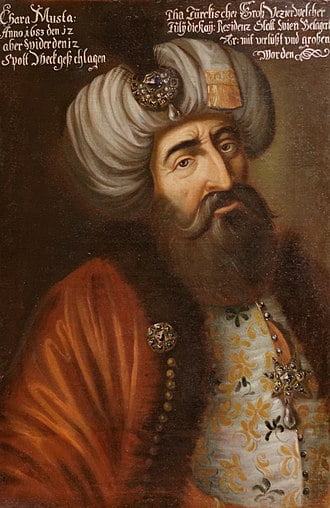
3.4. A personal coffee tier for the Pasha
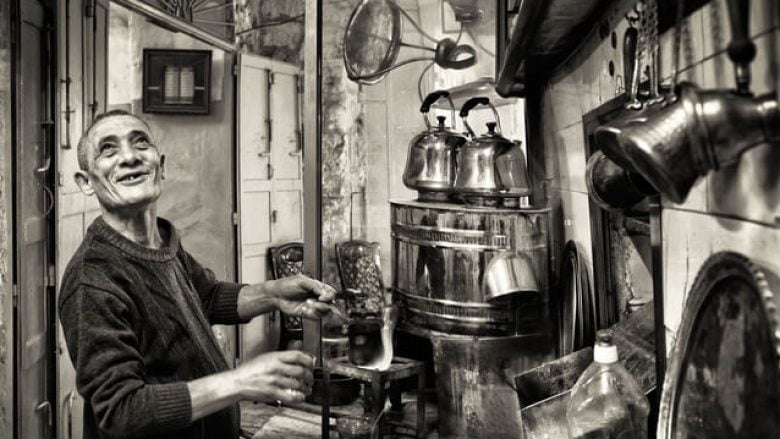
4. How coffee drinking became “an Albanian coffee ritual”
Since the consumption of coffee has been incorporated into Albanian society for more than 500 years now, it has found its way inside the rituals. To the point that the sweetness of the coffee can tell you a positive or negative reply to a request that you have, following the Gheg tradition in the high clans.
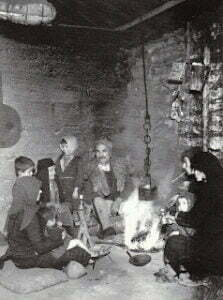 In the old traditional way when someone is dressed up to perform an official visit to another family for reasons such as a marriage proposal, ending a conflict or a blood feud, or an important business venture the rituals of the visit follows a certain order and it ends with the serving of the coffee.
In the old traditional way when someone is dressed up to perform an official visit to another family for reasons such as a marriage proposal, ending a conflict or a blood feud, or an important business venture the rituals of the visit follows a certain order and it ends with the serving of the coffee.
The guest will not be asked how he likes his coffee but rather served the coffee sweet if the reply is a positive one, in this case, the guest will state “You used honey for my coffee” confirming that he got the reply. In the case of a medium state of sugar, he will interpret this as the case is still persisting and a decision is not reached yet but in another time. If the coffee is bitter and without sugar, he got a refusal and most likely will stay silent and change the topic of conversation.
In Albanian society, a negative reply could sound heavy and coffee was used as a silent way to give a reply to a guest and both parties moved on without saying anything without adding an offense to the other family involved in the matter.
4.1. The Albanian coffee ritual during funerals
Coffee culture has a deep bond with the funeral ritual and the bitterness or sweetness of the coffee will tell how much the person is missed but also can tell how old the person was.
If a person dies young then the family will serve the coffee without sugar, if the person was old and his sons & daughters are married and grownup they will serve a sweet coffee. At the end of the coffee, drinking is the moment when the guests will perform a donation in money toward the family that lost a person.
On some occasions, the coffee was served immediately after the mortar ritual stating that the dying person was an important person.
4.2. The superstitions in the coffee drinking habits
Coffee culture involve also superstition behavior, the way someone drinks the coffee tells you a lot about him/her as a character, lifestyle, and spirit.
If someone likes to drink coffee hot according to the superstitions it means that that person is a coward. If someone likes his coffee sweet it means his life is bitter and if his life is sweet with drinks the coffee bitter.
If the coffee was served with the left hand and placed under the knee is considered an offense toward the drinker since he is considered a coward. As a rule, the coffee ritual is the end of events such as visits, funerals, etc.
5. Today’s ritual of coffee drinking
Since the Italians invented the espresso machine the process made its way to Albania changing the modern coffee culture. We do know for sure that before the 2WW the espresso was served in Albanian bars. Traditionally at home, Albanians still made Turkish coffee but when they go out they consume espresso.
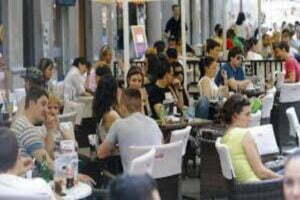 Albania is the only country that can compete with Italy for the quality of espresso coffees, and is a place where Italians can easily find themself at ease with coffee.
Albania is the only country that can compete with Italy for the quality of espresso coffees, and is a place where Italians can easily find themself at ease with coffee.
The main difference is that Italians will stand and drink their coffee in 2 minutes, whereas the majority of Albanians can seat with an empty coffee for hours. It is very common for Albanians to use the term “let’s go for a coffee” instead of “let’s go for a drink” and on average Albanians consumes more than 2 espresso coffees per day.
Want to know more about our culture & heritage keep looking at our Blog!



